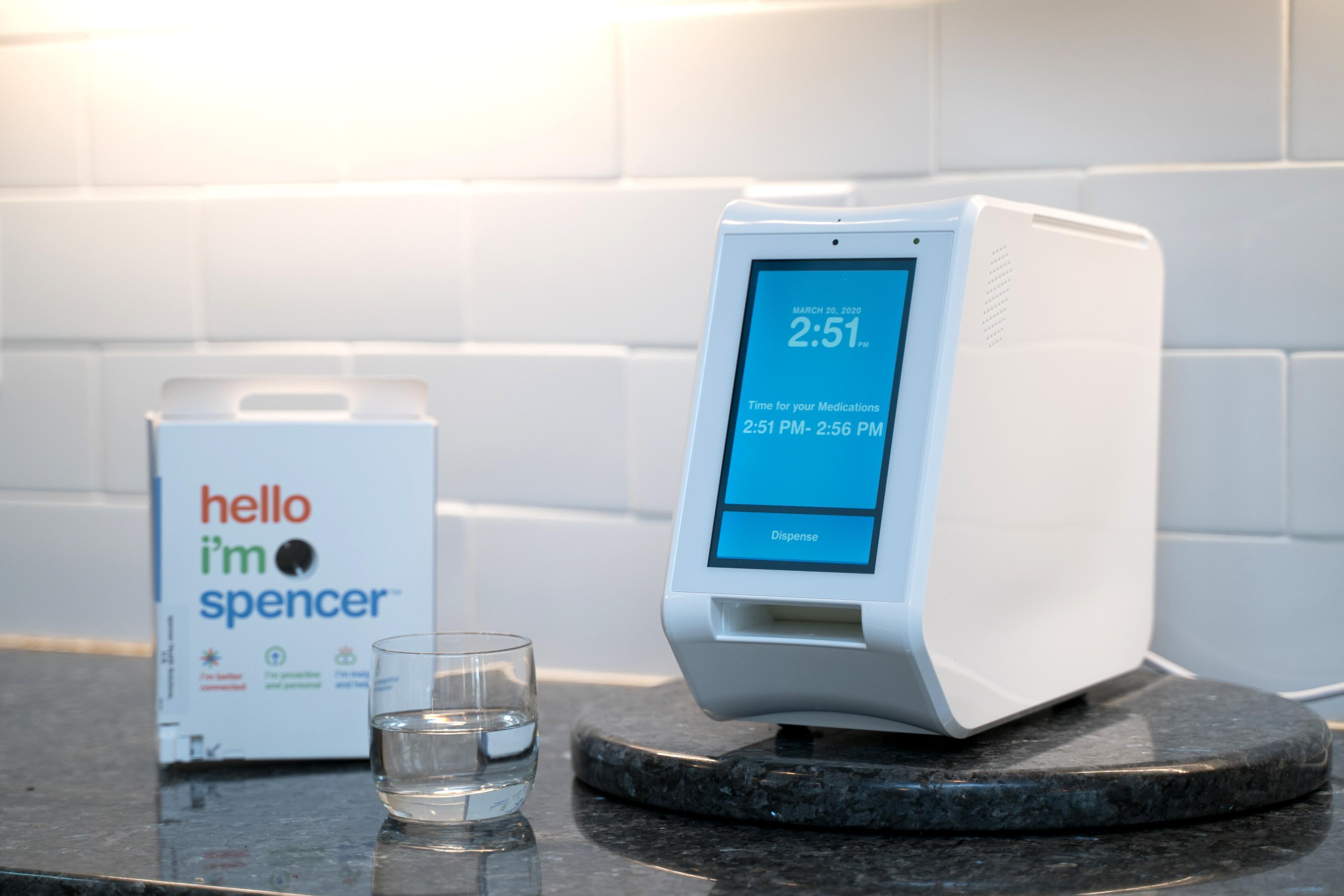Background
With funding from the Centre for Aging and Brain Health Innovation (CABHI) through its Industry Innovation Partnership Program (I2P2), researchers from Alberta Health Services, Health Systems Evaluation and Evidence, conducted a Randomized Controlled Trial (RCT) to examine the effectiveness of connected technology on improving medication adherence and health perception in older adults with chronic conditions.
Challenge
Limited quantitative studies have been conducted to justify the perceived effectiveness of the technology in improving mediation adherence and health in the older population. Even fewer have been conducted in controlled settings and such consideration is required to support widespread adoption as an effective, long-term solution to medication non-adherence.
50
Participants, 24 with spencer
63
Average age
Six
Months data collection
98%
Adherence with spencer
Solution
To determine users’ perspectives on a medication dispensing system in supporting medication adherence of individuals living at home with chronic conditions. Older adults with at least one chronic condition, on five or more medications and living at home were recruited, to help them with medication management through real-time monitoring, triage to a community pharmacist and intervention as required.
Participants enrolled and were introduced to a pharmacist for a personalized med review and health consult, provided with a spencer device, and weekly or bi-weekly home delivery of meds. When people use spencer, we can see whether or not they're taking their medication. Their pharmacy has a dashboard for real-time insight into patients adherence, and we see data across all users. When people take everything as prescribed, great! And for those who don't, we discuss potential reasons why with their pharmacist. Many times it's a simple tweak to better align with an individuals schedule, i.e. the first dose on Wednesday's is at 8:30am instead of 7:30am. These small adjustments help people to achieve great adherence, which then gives us the opportunity to assess whether the medications are effective and to take action accordingly.
Results
spencer can be an effective, long-term solution to non-adherence in older adults experiencing chronic conditions and taking multiple medications.
Mubashir Arain, PhD, Principal Investigator
The average medication adherence over the six-month study with our connected technology was 98.35%, and the trend of recorded medication adherence further revealed that users had immediate improvement and consistent adherence over time. Furthermore, the service improved the perceived health status of users over time, whereas the control participants did not perceive improvements in health.
The findings from this study add value to existing literature regarding future use and adoption of in-home medication dispensing technology, which has the potential to decrease healthcare system utilization, allow healthcare resources to be used more effectively, and, ultimately, decrease healthcare costs.
Read the full text as published in BMC Geriatrics
Highlights from the interim qualitative study, part of the larger randomized controlled trial described above:
- Users stayed on track and on schedule with their medication regimen
- Users maintained their independence and kept a consistent daily routine
- People felt less worried and stressed which helped improve relationships
- spencer improves medication management and adherence in older adults
- Increased adherence may lead to patient and system-level benefits
Read the full text as published in Medical Devices: Evidence and Research
I was taking my medications on time, 99% of the time and it seems like my diabetic glucose [level] has gone under seven which is really, really good. So taking my pills on time is helping me with whatever the pills are supposed to do my body.
AHS study participant


